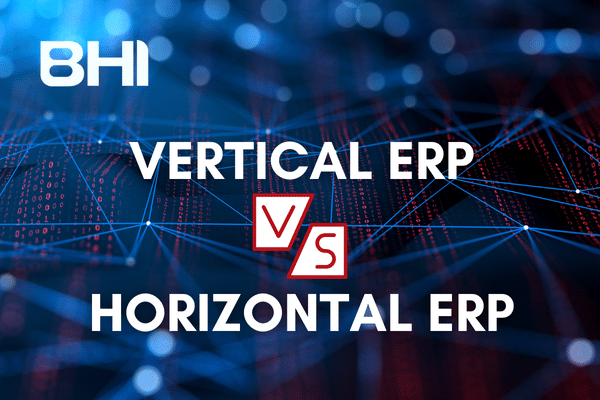Data governance has become a central issue in the digital transformation of businesses. As organizations strive to leverage new technologies to improve efficiency, competitiveness and innovation, proper data management is becoming a key success factor. Indeed, data is now considered a strategic asset, and its governance helps to ensure its quality, security and compliance with current regulations.
In this article, we will explore in depth the crucial role of data governance in digital transformation, highlighting best practices, challenges and benefits for companies that adopt a rigorous, structured approach to managing their data.
What is data governance ?
Data governance refers to the set of processes, policies and standards put in place to manage, protect and use data effectively within an organization. It aims to ensure that data is reliable, accessible, secure and compliant with legal and regulatory requirements.
The main objectives of data governance
- Data quality
Ensure that data is accurate, complete and up-to-date.
- Data security
Protect data against cyber-attacks, leaks and unauthorized access.
- Compliance
Ensure that data complies with laws and regulations, such as RGPD in Europe.
- Accessibility
Guarantee that the right people have access to the right data at the right time.
The importance of data governance in digital transformation
Digital transformation relies on harnessing data to make informed decisions, improve processes and deliver personalized customer experiences. Without effective data governance, companies risk being left with inaccurate information, data silos or privacy breaches, which can compromise their transformation efforts.
The benefits of good data governance
- Informed decision-making
Reliable data enables managers to make decisions based on facts, rather than assumptions.
- Improved operational efficiency
Better data management helps automate certain processes and reduce human error.
- Reduced risk
Rigorous governance helps minimize data security and non-compliance risks.
- Improved customer experience
By leveraging quality data, companies can offer more personalized services and respond more quickly to customer needs.
The challenges of data governance
Although data governance is essential, its implementation poses several challenges for companies, including :
1. Managing data silos
In many organizations, data is often dispersed across different departments or systems, making it complex to manage. Data governance must help to break down these silos and centralize access to information.
2. Protecting personal data
With cyber-attacks and data breaches on the increase, companies need to strengthen their security measures to protect sensitive information. This includes implementing strict policies to protect personal data, in line with regulations such as RGPD.
3. Evolving regulations
Data management laws and regulations are constantly evolving, and companies need to adapt quickly to stay compliant. This requires constant legal monitoring and regular updating of internal policies.
4. Resistance to change
Digital transformation often involves cultural change within the company. Implementing data governance can meet with resistance, particularly from employees accustomed to more traditional working methods.
Best practices for effective data governance
To successfully implement data governance, it is essential to follow certain best practices :
1. Define clear roles and responsibilities
Data governance requires collaboration between different departments within the company. It is therefore important to clearly define the roles and responsibilities of each, in particular by appointing a Chief Data Officer (CDO) or data governance manager.
2. Establish policies and procedures
Clear policies must be established to govern the collection, storage, use and protection of data. These policies must be regularly updated to take account of technological and regulatory developments.
3. Use data management tools
There are many software tools available to facilitate data management, such as Data Management Platforms (DMP) or Master Data Management (MDM). These tools help to centralize data and guarantee its quality.
4. Train employees
Data governance cannot be effective without the involvement of all employees. It is therefore crucial to train them in good data management practices, and to raise their awareness of security and confidentiality issues.
5. Measure and monitor performance
It is important to set up performance indicators to assess the effectiveness of data governance. This enables any problems to be detected quickly and policies adjusted accordingly.
Data governance and artificial intelligence
The rise of artificial intelligence (AI) and machine learning in the enterprise is further reinforcing the importance of data governance. Indeed, these technologies rely on the use of large quantities of data to operate effectively. If the data used is not of high quality, or does not comply with ethical and legal standards, the results obtained by AI can be biased or erroneous.
The impact of data quality on AI
- Prediction accuracy
Poor-quality data can lead to inaccurate or misleading predictions.
- Ethics and bias
Using biased data can lead to discriminatory or unfair decisions.
- Compliance
AI algorithms must comply with data protection regulations, particularly with regard to personal information.
The future of data governance
As digital transformation gathers pace, data governance will continue to evolve and grow in importance in the years ahead. Here are a few emerging trends that will shape the future of data governance :
1. Governance automation
Artificial intelligence and machine learning will increasingly be used to automate certain aspects of data governance, such as data classification, quality and security. This will enable more efficient and responsive management of large-scale data.
2. Real-time data governance
With the increasing volume and velocity of data, companies will need to implement governance systems capable of processing and managing data in real time, enabling faster, more agile decision-making.
3. Integrating data ethics
Beyond regulatory compliance, companies will need to integrate ethical considerations into their data governance, particularly around the use of AI and algorithms. This will include issues such as fairness, transparency and accountability in the use of data.
4. Decentralized data governance
With the rise of blockchain technologies and decentralized architectures, new models of data governance will emerge, offering individuals more control over their personal data.
5. Focus on data resilience
In the face of growing cybersecurity threats and potential disruptions, data governance will place greater emphasis on resilience, ensuring business continuity and the protection of critical data assets.
Conclusion
Data governance is a fundamental element of successful digital transformation. It enables companies to take full advantage of their data while minimizing security, compliance and information quality risks. By adopting a rigorous approach and following best practices, organizations can not only improve their operational efficiency, but also strengthen their competitiveness in the marketplace.
As the digital landscape evolves, data governance will continue to adapt, incorporating new technologies and approaches to meet emerging challenges. Organizations that invest in robust, scalable data governance will be better positioned to thrive in the digital economy, transforming their data into a true competitive advantage.
Ultimately, effective data governance is not just about compliance or risk management, but a catalyst for innovation, growth and value creation in the digital age.
At BHI, we understand the crucial importance of effective data governance in the digital transformation process. Our team of experts is ready to support you in implementing a data governance strategy tailored to your specific needs. Whether you’re at the beginning of your digital transformation journey or looking to optimize your existing practices, we’re here to guide you.
Contact BHI today to find out how we can help you unlock the full potential of your data and propel your business to new heights in the digital age. Together, let’s turn your data into a powerful engine for growth, innovation and sustainable success.

















